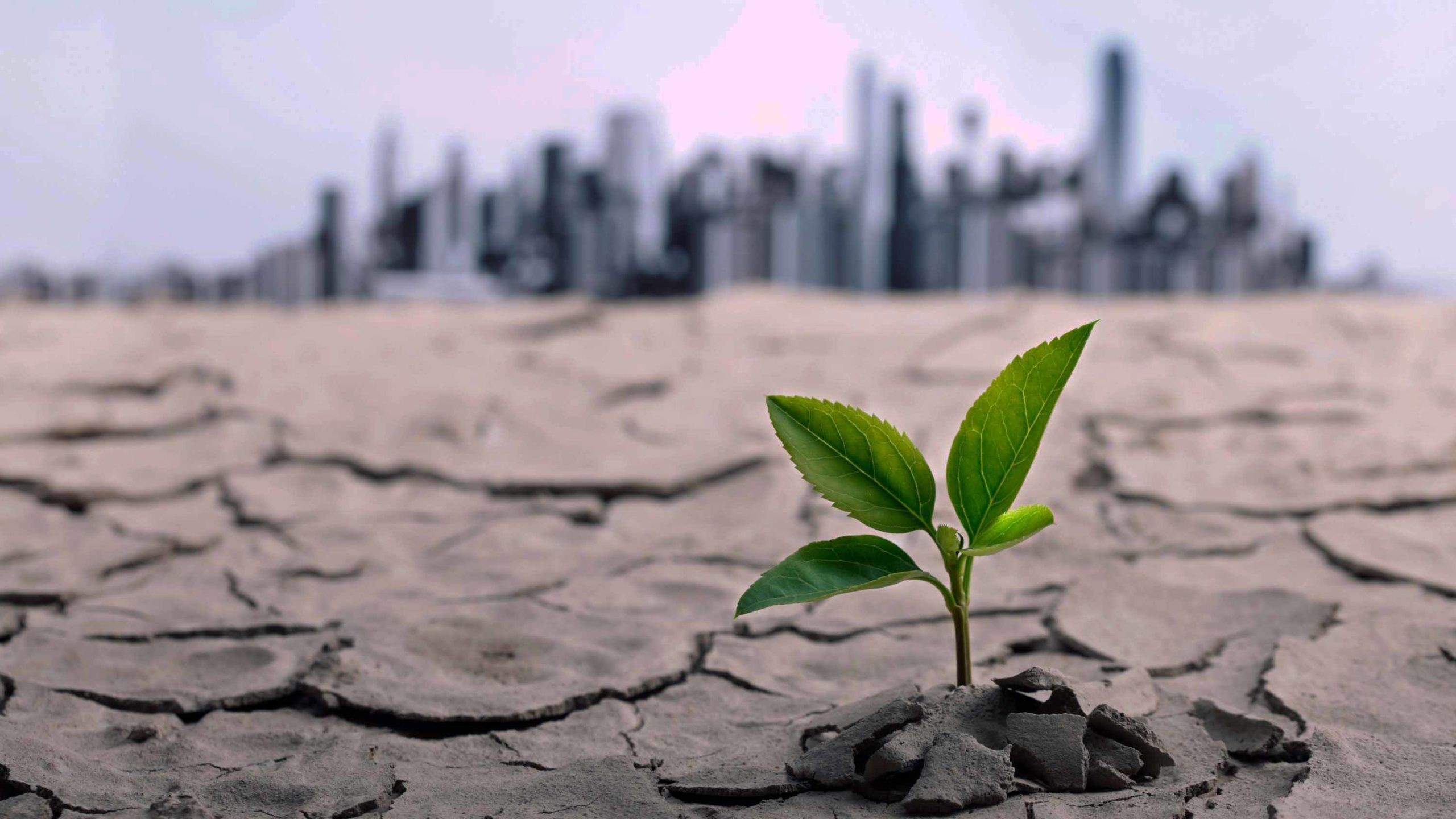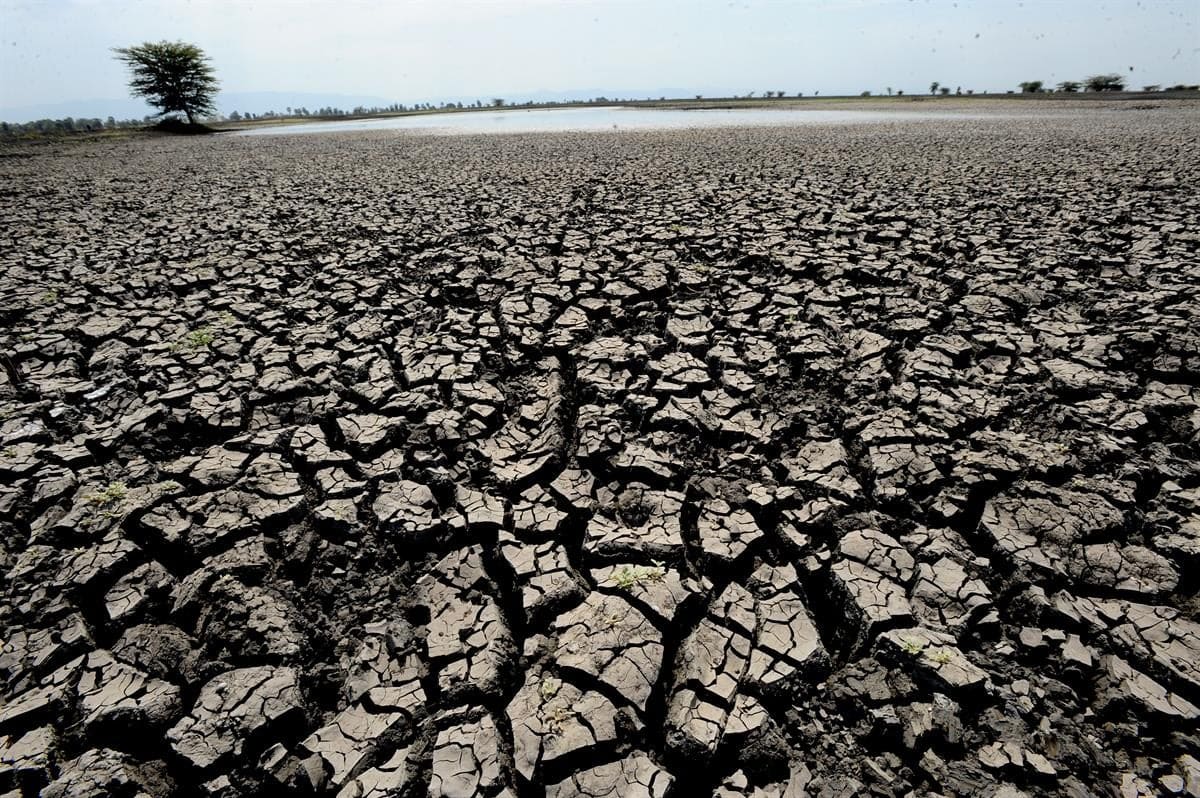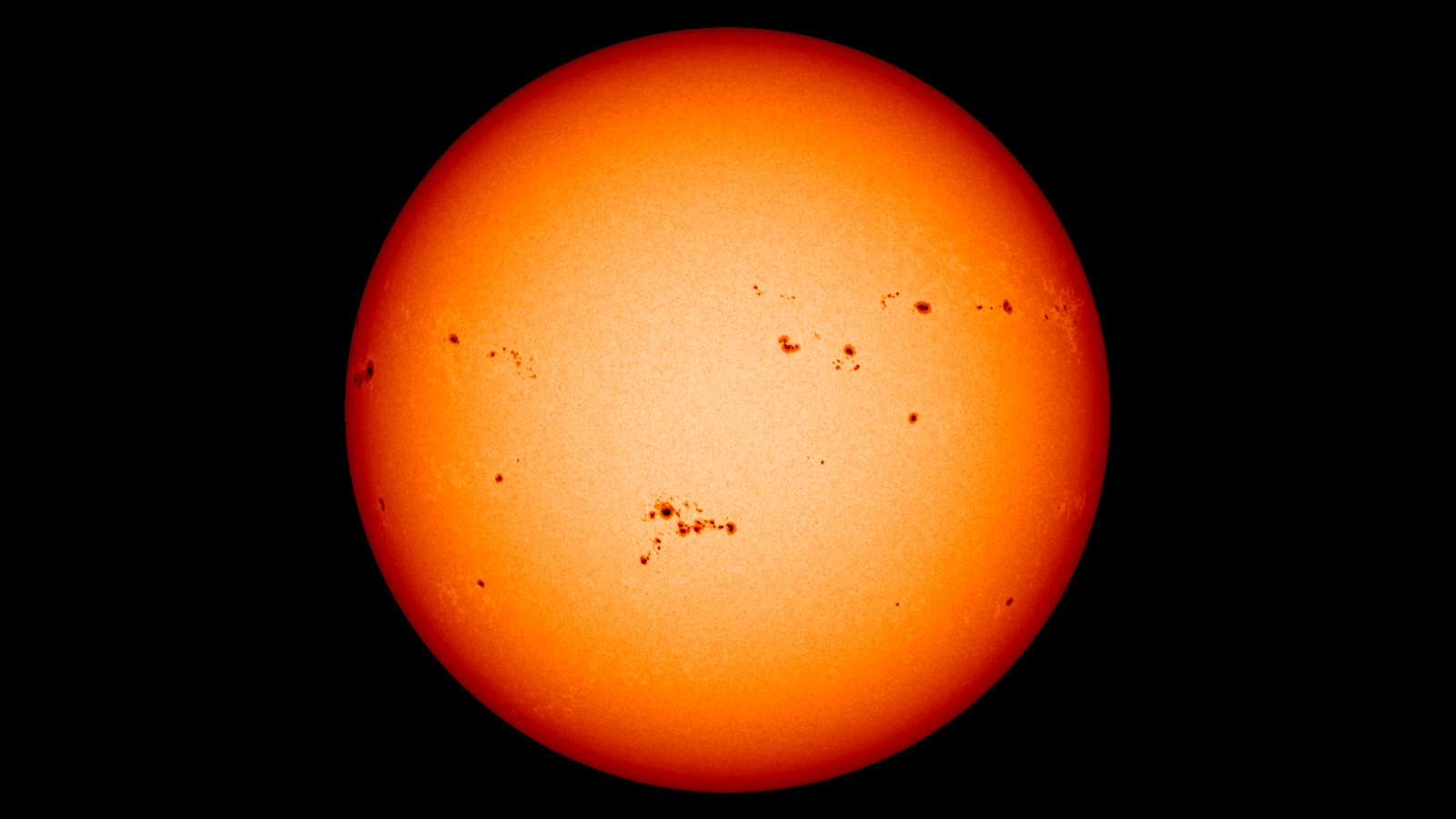Home>Weather and Climate>The Impact Of Ocean Warming: Understanding The Consequences And Solutions


Weather and Climate
The Impact Of Ocean Warming: Understanding The Consequences And Solutions
Published: March 2, 2024
Learn about the consequences and solutions of ocean warming and its impact on weather and climate. Understand the effects and find solutions to address this critical issue.
(Many of the links in this article redirect to a specific reviewed product. Your purchase of these products through affiliate links helps to generate commission for Temperatures.com, at no extra cost. Learn more)
Table of Contents
Introduction
Ocean warming is a critical environmental issue that has garnered increasing attention in recent years. As the Earth's climate continues to undergo significant changes, the impact of rising ocean temperatures has become a focal point for scientists, policymakers, and the public alike. The warming of the world's oceans is a complex and multifaceted phenomenon with far-reaching implications for ecosystems, economies, and human well-being.
The oceans play a pivotal role in regulating the planet's climate and supporting a diverse array of marine life. However, the relentless increase in ocean temperatures poses a substantial threat to these delicate ecosystems. From coral reefs to marine species, the effects of ocean warming are reverberating throughout the underwater world, leading to disruptions in food chains, habitat loss, and altered migration patterns.
Moreover, the consequences of ocean warming extend beyond the realm of marine biology. The economic impacts of these changes are profound, affecting industries such as fisheries, tourism, and coastal infrastructure. As sea levels rise and weather patterns shift, communities around the globe are grappling with the tangible repercussions of a warming ocean.
In addition to ecological and economic concerns, the social and human health effects of ocean warming cannot be overlooked. Coastal communities are particularly vulnerable to the effects of rising sea levels and extreme weather events, which can result in displacement, food insecurity, and heightened health risks.
As the urgency of addressing ocean warming becomes increasingly apparent, the need for effective mitigation and adaptation strategies is more pressing than ever. By understanding the causes and consequences of ocean warming, we can work towards implementing policies and solutions that safeguard our oceans and the livelihoods that depend on them.
In the following sections, we will delve into the science of ocean warming, explore its ecological and economic impacts, and examine the social and human health effects. Furthermore, we will discuss mitigation and adaptation strategies, as well as policy recommendations and solutions aimed at addressing this critical issue. Through a comprehensive understanding of ocean warming, we can pave the way for a more sustainable and resilient future for our planet and its inhabitants.
The Science of Ocean Warming
The science of ocean warming delves into the intricate mechanisms driving the increase in sea surface temperatures and the profound implications for the Earth's climate system. At the heart of this phenomenon lies the absorption of excess heat from the atmosphere by the world's oceans. This process is closely linked to the escalating levels of greenhouse gases in the atmosphere, primarily carbon dioxide, which trap heat and contribute to global warming.
The oceans act as a vast heat sink, absorbing more than 90% of the excess heat generated by human activities, such as the burning of fossil fuels and deforestation. This absorption not only leads to a rise in sea surface temperatures but also influences ocean circulation patterns, weather systems, and marine ecosystems.
The warming of the oceans has been meticulously documented through extensive scientific research and monitoring efforts. Data collected from ocean buoys, research vessels, and satellite observations have provided compelling evidence of the steady increase in ocean temperatures over the past century. These findings underscore the undeniable reality of ocean warming and its far-reaching consequences.
Furthermore, the impact of ocean warming extends beyond surface temperatures, affecting the entire water column and contributing to changes in ocean stratification. As the upper layers of the ocean warm, they become less dense, leading to a reduction in vertical mixing and the potential for stratified layers to impede nutrient transport to the surface. These alterations in ocean dynamics can have profound implications for marine life, particularly in regions where upwelling and nutrient-rich waters support thriving ecosystems.
The role of the oceans in regulating the Earth's climate cannot be overstated. Ocean currents, such as the Gulf Stream and the Antarctic Circumpolar Current, play a pivotal role in redistributing heat around the globe, influencing weather patterns and regional climates. As ocean temperatures continue to rise, the delicate balance of these currents and their associated climate impacts is at risk of being disrupted, with potentially far-reaching consequences for ecosystems and human societies.
In summary, the science of ocean warming underscores the intricate interplay between the Earth's oceans and the broader climate system. By comprehensively understanding the mechanisms driving ocean warming, we can better appreciate the urgency of addressing this critical issue and work towards implementing effective solutions to mitigate its impacts.
Ecological Consequences of Ocean Warming
Ocean warming has profound ecological consequences, impacting marine ecosystems and biodiversity in multifaceted ways. One of the most visible effects is the widespread bleaching of coral reefs, which occurs when elevated sea temperatures cause the expulsion of the symbiotic algae that provide corals with their vibrant colors and a major source of their nutrients. As a result, the corals turn white and become more susceptible to disease and mortality. This phenomenon has devastating implications for the intricate web of life that depends on coral reefs, from fish and invertebrates to marine mammals and humans who rely on these ecosystems for sustenance and livelihoods.
Furthermore, ocean warming disrupts the distribution and abundance of marine species, leading to shifts in their habitats and migration patterns. For instance, many fish species are moving poleward in search of cooler waters, impacting the livelihoods of coastal communities that depend on traditional fishing grounds. Additionally, the reproductive and feeding patterns of marine organisms are being altered, with potential cascading effects throughout the food web.
The delicate balance of marine ecosystems is further threatened by the acidification of the oceans, which is closely linked to rising sea temperatures. As the oceans absorb more carbon dioxide from the atmosphere, they become more acidic, posing significant challenges for calcifying organisms such as shellfish, corals, and certain plankton species. The acidification of seawater can impede the ability of these organisms to build and maintain their calcium carbonate structures, with far-reaching implications for the entire marine food web.
Moreover, ocean warming exacerbates the frequency and intensity of extreme weather events, such as hurricanes and typhoons, which can wreak havoc on coastal habitats and communities. Storm surges, coastal erosion, and the destruction of critical habitats are among the ecological consequences of these extreme events, further exacerbating the vulnerability of marine ecosystems to the impacts of ocean warming.
In summary, the ecological consequences of ocean warming are far-reaching and multifaceted, posing significant challenges to the resilience and sustainability of marine ecosystems. Understanding and addressing these impacts is crucial for the preservation of biodiversity, the protection of vital ecosystem services, and the well-being of human societies that depend on the oceans for sustenance and livelihoods.
Economic Impacts of Ocean Warming
Ocean warming exerts substantial economic impacts, affecting industries, livelihoods, and coastal communities around the world. One of the most significant economic consequences is observed in the fisheries sector. As marine species migrate in response to changing ocean temperatures, traditional fishing grounds are being altered, posing challenges for fishing communities reliant on specific species and habitats. This disruption can lead to reduced catch yields, economic instability, and potential conflicts over fishing territories.
Furthermore, the decline of fish stocks due to ocean warming can have ripple effects throughout the seafood supply chain, impacting fish markets, processing facilities, and seafood export industries. In addition, the aquaculture sector, which relies on stable marine environments for fish and shellfish farming, faces heightened risks due to the susceptibility of aquaculture facilities to extreme weather events and the spread of marine diseases linked to warmer waters.
The tourism industry, particularly in coastal regions, is also vulnerable to the economic impacts of ocean warming. Coral reefs, which are major attractions for divers and snorkelers, are experiencing widespread bleaching and degradation, diminishing their aesthetic appeal and ecological value. This decline in reef health can lead to decreased tourism revenue, affecting local businesses, tour operators, and hospitality services that depend on reef-related activities for income generation.
Coastal infrastructure and property values are another area of concern in the face of ocean warming. Rising sea levels and the increased frequency of coastal storms pose risks to homes, businesses, and critical infrastructure, leading to heightened insurance costs, property devaluation, and the need for costly adaptation measures. Furthermore, the erosion of coastal habitats, such as mangroves and salt marshes, diminishes their natural protective functions, leaving coastal communities more vulnerable to the impacts of extreme weather events and sea level rise.
The economic impacts of ocean warming extend beyond specific industries and sectors, permeating the broader fabric of coastal economies and livelihoods. As such, addressing these economic challenges requires a comprehensive approach that integrates sustainable fisheries management, climate-resilient coastal development, and the preservation of marine ecosystems. By recognizing the economic stakes involved in ocean warming, policymakers, businesses, and communities can work towards implementing adaptive strategies and sustainable practices that safeguard coastal economies and the well-being of those who depend on the oceans for their livelihoods.
Social and Human Health Effects of Ocean Warming
The social and human health effects of ocean warming are profound and multifaceted, impacting coastal communities, food security, and public health in diverse ways. As sea temperatures continue to rise, coastal regions are increasingly vulnerable to the impacts of extreme weather events, such as hurricanes, storm surges, and flooding. These events can result in the displacement of communities, damage to critical infrastructure, and disruptions to essential services, posing significant challenges to the well-being and resilience of coastal populations.
Furthermore, the implications of ocean warming extend to food security and nutrition, particularly for communities that rely on marine resources as a primary source of sustenance. Changes in ocean temperatures and ecosystems can lead to shifts in the availability and distribution of fish and shellfish, affecting the livelihoods and dietary habits of coastal populations. This can result in food insecurity, malnutrition, and economic hardships, particularly in regions where fishing and seafood consumption are integral to local cultures and traditions.
The human health effects of ocean warming are also a cause for concern, as warmer sea temperatures can facilitate the proliferation of harmful algal blooms and the spread of waterborne diseases. Coastal communities are at heightened risk of exposure to toxins produced by algal blooms, which can contaminate seafood and pose significant health risks to those who rely on marine resources for sustenance. Additionally, the warming of coastal waters can create favorable conditions for the transmission of waterborne pathogens, impacting public health and necessitating heightened surveillance and management of water quality.
Moreover, the social fabric of coastal communities is intricately linked to the health of the oceans, with cultural and recreational activities closely tied to marine environments. Ocean warming and its associated impacts, such as coral bleaching and habitat degradation, can diminish the cultural significance of marine ecosystems and disrupt traditional practices, affecting the well-being and identity of coastal communities.
In summary, the social and human health effects of ocean warming underscore the interconnectedness of environmental and societal well-being. Addressing these impacts requires a holistic approach that integrates climate-resilient community planning, sustainable resource management, and public health interventions. By recognizing the social and human health dimensions of ocean warming, policymakers, public health authorities, and communities can work towards implementing adaptive strategies and protective measures that safeguard the well-being of coastal populations and the ecosystems on which they depend.
Mitigation and Adaptation Strategies
Mitigating and adapting to the impacts of ocean warming requires a multifaceted approach that integrates scientific research, policy interventions, and community engagement. One of the primary strategies for mitigating ocean warming is the reduction of greenhouse gas emissions, which entails transitioning towards renewable energy sources, improving energy efficiency, and implementing carbon capture and storage technologies. By curbing the emissions that drive global warming, we can mitigate the heat uptake by the oceans and alleviate the cascading impacts on marine ecosystems and coastal communities.
In addition to emission reductions, the preservation and restoration of coastal habitats, such as mangroves, salt marshes, and seagrass meadows, play a crucial role in mitigating the effects of ocean warming. These ecosystems serve as natural carbon sinks, sequestering carbon dioxide from the atmosphere and mitigating the acidification of coastal waters. Furthermore, they provide critical coastal protection, buffering against storm surges and erosion, and offering essential habitats for marine life.
Adaptation strategies are equally vital in addressing the ongoing and anticipated impacts of ocean warming. Climate-resilient coastal planning and infrastructure development are essential for safeguarding communities against rising sea levels, extreme weather events, and coastal erosion. This includes the implementation of nature-based solutions, such as green infrastructure and coastal restoration projects, to enhance the resilience of coastal areas and reduce the vulnerability of communities to the impacts of ocean warming.
Furthermore, sustainable fisheries management and aquaculture practices are integral to adapting to the changing dynamics of marine ecosystems. Implementing science-based fisheries regulations, establishing marine protected areas, and promoting sustainable aquaculture techniques can help mitigate the disruptions caused by ocean warming and support the long-term viability of marine resources and livelihoods.
Engaging and empowering coastal communities is a fundamental aspect of effective mitigation and adaptation strategies. Community-based initiatives, education programs, and stakeholder engagement efforts can foster a sense of ownership and resilience among coastal populations, enabling them to actively participate in the conservation and sustainable management of marine resources.
Ultimately, a comprehensive approach to mitigating and adapting to ocean warming involves collaboration across scientific, governmental, and community sectors. By integrating mitigation and adaptation strategies into policy frameworks, fostering innovation and knowledge exchange, and prioritizing the protection of marine ecosystems and coastal communities, we can work towards a more sustainable and resilient future in the face of ocean warming.
Policy Recommendations and Solutions
Policy recommendations and solutions are pivotal in addressing the multifaceted challenges posed by ocean warming. Effective policies play a crucial role in mitigating the impacts of rising sea temperatures, preserving marine ecosystems, and safeguarding the well-being of coastal communities. Here are key policy recommendations and solutions aimed at addressing the critical issue of ocean warming:
-
International Collaboration and Agreements: Encouraging international cooperation and the ratification of agreements aimed at reducing greenhouse gas emissions is essential. Building on existing frameworks such as the Paris Agreement, nations can work together to set ambitious targets for emission reductions and implement measures to limit global temperature rise, thereby mitigating the impacts of ocean warming.
-
Marine Protected Areas and Ecosystem-Based Management: Establishing and expanding marine protected areas, coupled with ecosystem-based management approaches, can help conserve critical habitats and enhance the resilience of marine ecosystems. These measures can safeguard biodiversity, support fisheries sustainability, and mitigate the ecological consequences of ocean warming.
-
Integrated Coastal Zone Management: Implementing integrated coastal zone management strategies that account for the interconnected nature of coastal ecosystems, human activities, and climate impacts is vital. This approach involves balancing conservation, sustainable resource use, and coastal development to minimize the vulnerability of coastal communities to the effects of ocean warming.
-
Climate-Resilient Infrastructure and Adaptation Planning: Incorporating climate resilience into coastal infrastructure and urban planning is imperative. This includes designing and retrofitting infrastructure to withstand sea level rise, storm surges, and coastal erosion, as well as integrating nature-based solutions such as mangrove restoration and green infrastructure to enhance coastal resilience.
-
Sustainable Fisheries Regulations and Aquaculture Practices: Enforcing science-based fisheries regulations, combatting illegal, unreported, and unregulated (IUU) fishing, and promoting sustainable aquaculture practices are essential for adapting to the changing dynamics of marine ecosystems. These measures can help mitigate the disruptions caused by ocean warming and support the long-term viability of marine resources and livelihoods.
-
Public Awareness and Education: Promoting public awareness and education on the impacts of ocean warming, sustainable marine practices, and climate-resilient behaviors is crucial. Engaging coastal communities, stakeholders, and the general public can foster a sense of ownership and resilience, leading to informed decision-making and active participation in conservation efforts.
By implementing these policy recommendations and solutions, policymakers, governmental bodies, and international organizations can work towards a more sustainable and resilient future in the face of ocean warming. These proactive measures are essential for preserving marine ecosystems, protecting coastal communities, and mitigating the far-reaching impacts of rising sea temperatures.
Conclusion
In conclusion, the impact of ocean warming is a multifaceted and urgent environmental challenge that demands comprehensive understanding, proactive solutions, and concerted global action. The relentless increase in sea surface temperatures, driven by human-induced climate change, has far-reaching implications for marine ecosystems, coastal economies, and the well-being of coastal communities. From the ecological consequences, economic impacts, and social and human health effects to the imperative for mitigation and adaptation strategies and policy recommendations, the ramifications of ocean warming are profound and interconnected.
The ecological consequences of ocean warming, from coral bleaching to shifts in marine species distribution, underscore the vulnerability of marine ecosystems to the effects of rising sea temperatures. These disruptions reverberate throughout the marine food web, posing challenges to biodiversity, fisheries sustainability, and the provision of vital ecosystem services. Furthermore, the economic impacts of ocean warming, spanning fisheries, tourism, and coastal infrastructure, underscore the need for adaptive strategies and sustainable practices to safeguard coastal economies and livelihoods.
The social and human health effects of ocean warming, including the vulnerability of coastal communities to extreme weather events and food security risks, highlight the interconnectedness of environmental and societal well-being. Addressing these impacts requires a holistic approach that integrates climate-resilient community planning, sustainable resource management, and public health interventions.
Mitigation and adaptation strategies, such as emission reductions, coastal habitat preservation, and sustainable fisheries management, are pivotal in addressing the ongoing and anticipated impacts of ocean warming. By integrating these strategies into policy frameworks and fostering collaboration across scientific, governmental, and community sectors, we can work towards a more sustainable and resilient future in the face of ocean warming.
Policy recommendations and solutions, encompassing international collaboration, marine protected areas, climate-resilient infrastructure, and public awareness, are essential for mitigating the impacts of rising sea temperatures, preserving marine ecosystems, and safeguarding the well-being of coastal communities. These proactive measures are vital for addressing the multifaceted challenges posed by ocean warming and paving the way for a more sustainable and resilient future.
In essence, the urgency of addressing ocean warming cannot be overstated. By recognizing the interconnectedness of ecological, economic, social, and human health dimensions, and by implementing proactive solutions and policy interventions, we can work towards a future where the world's oceans are safeguarded, and coastal communities thrive in the face of environmental challenges. Through collective efforts and a steadfast commitment to sustainability, we can navigate the complexities of ocean warming and chart a course towards a more resilient and harmonious coexistence with our marine ecosystems.














